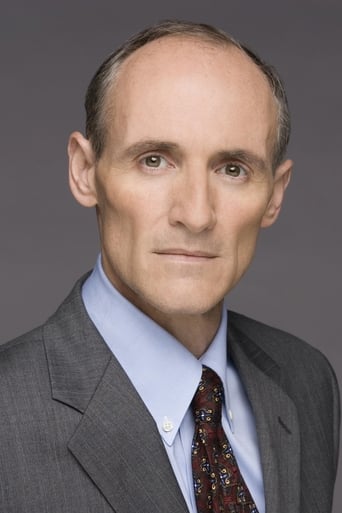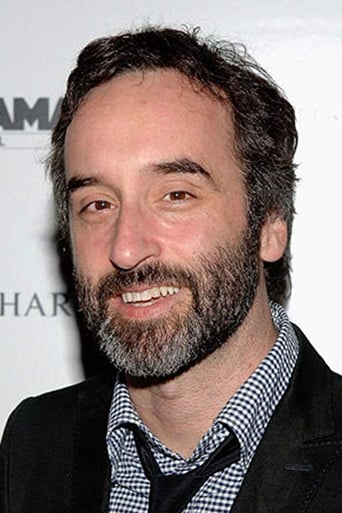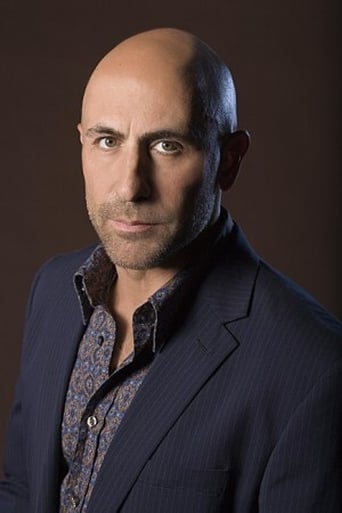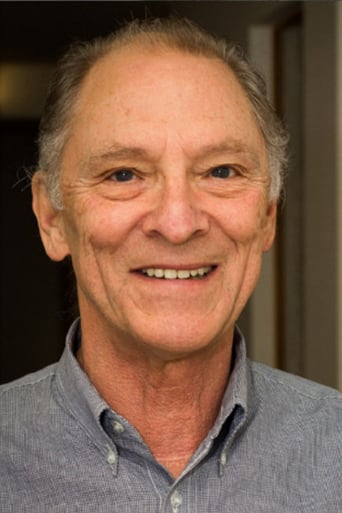NekoHomey
Purely Joyful Movie!
Robert Joyner
The plot isn't so bad, but the pace of storytelling is too slow which makes people bored. Certain moments are so obvious and unnecessary for the main plot. I would've fast-forwarded those moments if it was an online streaming. The ending looks like implying a sequel, not sure if this movie will get one
Brendon Jones
It’s fine. It's literally the definition of a fine movie. You’ve seen it before, you know every beat and outcome before the characters even do. Only question is how much escapism you’re looking for.
Lidia Draper
Great example of an old-fashioned, pure-at-heart escapist event movie that doesn't pretend to be anything that it's not and has boat loads of fun being its own ludicrous self.
Jackson Booth-Millard
I knew that this film was listed in the book 1001 Movies You Must See Before You Die, as a documentary of sorts I didn't know anything about the subject matter, but with high ratings by critics I was looking forward to it. Basically it is biopic about Canadian pianist Glenn Gould, one of the best-known and most celebrated classical pianists of the 20th century. The difference with this film is there is not a single narrative, it is made up of thirty-one short films, or vignettes (sketches) (the thirty-second film is the end credits), mostly featuring Gould's music.The thirty-two short films are: 1) Aria - a man walking in a white wilderness. 2) Lake Simcoe - Glenn's childhood, his Mother (Katya Ladan) watching him learning to play piano. 3) Forty-five Seconds and a Chair - Glenn Gould (Colm Feore) sat in a chair. 4) Bruno Monsaingeon: musician and collaborator. 5) Gould Meets Gould: text by Glenn Gould - Gould talking to himself in a studio. 6) Hamburg - Gould diagnosed with bronchitis in the lung, then doing a piano recording and doing something with the maid. 7) Variation of C Minor - an animation of an audio wave line. 8) Practise. 9) The L.A. Concert - Gould walking through the theatre corridors meeting people. 10) CD318 - piano playing on stage, with close-ups of they keys, hammers and strings. 11) Yehudi Menuhin: violinist. 12) Passion According to Gould - Gould listening to piano. 13) Opus 1: a Composition by Glenn Gould - four men sitting playing string instruments. 14) Crossed Paths - various friends and colleagues interviewed. 15) Truck Stop - "Downtown" by Petula Clark playing in a roadside diner, there is eavesdropping on many conversations. 16) The Idea of North: A Radio Interview by Glenn Gould. 17) Solitude - Gould walking and talking in the snow with an invisible interviewer. 18) Questions with No Answers - journalists and interviewers asking Gould questions, face to face and on telephone, no responses are heard. 19) A Letter. 20) Gould Meets McLaren: Animation by Norman McLaren - dancing spheres in a forward moving sky. 21) The Tip - phone calls about shares in Sotex. 22) Personal Ad - Gould advertising to find someone as odd as him. 23) Pills - close-ups of drugs, with names and descriptions given, and their side effects. 24) Margaret Pacsu: friend. 25) Diary of One Day - writing of words and number sums on screen, and an x-ray of a body moving and the brain. 26) Motel Wawa - an interview on the telephone, and a window looking out to a beach. 27) Forty-Nine - Gould in a phone booth. 28) Jessie Greig: cousin. 29) Leaving - driving and Gould dying, following a stroke he suffered brain damage and was taken off life support. 30) Voyager - a space shuttle launch. 31) Aria - a repeat sequence. 32) End Credits.Also starring Derek Keurvorst as Gould's Father, Devon Anderson as Young Glenn Age 3, Joshua Greenblatt as Young Glenn Age 8, Sean Ryan as Young Glenn Age 12, Kate Hennig as Chambermaid and Sean Doyle as Porter. Feore gives a remarkable performance as the talented musician, the music of the real Gould is beautiful and goes well with the scenes, the editing is well done, and each segment, whether its acted, an interview or animated adds something different, you can draw your own conclusion of the real man being focused, a brilliantly crafted and most interesting biographical drama. Very good!
billcr12
Glenn Gould was a classical pianist of the first order. Made famous for his recordings of Bach's Goldberg Variation's, first in 1955 and then in 1981. As the short films show, Gould was an oddball with tremendous talent. He hummed along while playing, and was totally unaware of this quirk. The recording engineers were driven insane by this habit which can be heard on the final product.He was also a hypochondriac, constantly taking his own blood pressure and several medications simultaneously, which he chronicled in a diary.Some of the one to six minute segments are recreations, and others are interviews with people who knew him. The soundtrack is magnificent, for Gould's technique is breathtaking. Thirty Two Short Films is the story of a true genius whose life ended much too soon at the age of fifty, an almost self fulfilling prophecy, given the man's obsessive behavior. I loved this sad and beautiful movie.
darthmaus
'Thirty Two Short Films About Glenn Gould' will not appeal to everybody: it is not a traditionally narrative biographical documentary, and it will not present much in the way of the facts of Gould's existence. Rather, it attempts to portray many facets of his eccentric and self-centered genius largely by non-narrative means. There are a few documentary-style interviews, but I found these to be simply providing background for the dramatizations and visuals used to bring out his character.Gould's passions, quirks, and personality are presented with Colm Feore's decent likeness and obviously very thoroughly researched character development. Story takes a back seat to image and music, and the result for the audience is a feel for the persona of Glenn Gould, rather than the story of his life.I am biased, as a Canadian and a lover of Gould's music, but this is one of my all-time favourite films.
mcboo
Girard succeeds where many have failed- he creates an intimate portrait of an artist without falling subject to the cumbersome confines of the narrative 'birth to death' storyline format. What better way to breathe life into a musician's 'story' than rhythmically assembling a collection of several recreated happenings, bits of documentary conversation, and performances of actual musical pieces (orchestrated works of Gould's) that each examine a particular instance from Glen Gould's life? By avoiding a typical diluted overview of the artist's entire timeline of events, Girard instead picks out specific happenings in Gould's life that each tells a story of a complex, confused, and brilliant man. These shorts are shown in a somewhat chronological order, so as not to completely ignore the fact that the collection of shorts aims to sculpt a more complete picture of Gould. Their consecutive placement being rhythmically conscious, the viewer is never lost in the experimental efforts or the non-narrative spectrum of the shorts, as they are closely followed by the more tangible aspects of Gould's life. Aesthetic elements from Gould's creative life are often carried over from one short to the next, which helps reinforce the unity as a whole of the 32 separate films. One of the most important aspects this structure brings to its audience is freeing them from the typical passive role. Instead of loosing yourself into a 2 hour story that tries its hardest to make it's viewer forget their lives, troubles, and identities by sweeping them into a fantasy world, the constant breathes between these short episodes remind the audience what they're seeing more resembles a diary from the artist rather than an alternate reality to 'forget oneself' in.Aside from the highly effective (and I believe far more suitable) structural effort of the film, the camera's language combined with the film's language is very conventional (aside from the sound editing in several cases). At times, the extremely literal usage of visual imagery falls a little flat, but it also works within its context in particular cases. Other innovations in the film stem from the content chosen (or even more so, what the filmmaker chooses not to show in several of the shorts). An excellent film for those who are humbled at the overwhelming confusion even the brilliant can carry.



